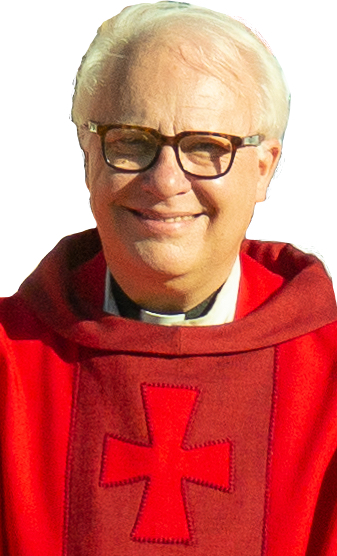As some of you know, I have an appointment at a university in the Czech Republic for the next four months, and Dean Don Bernhardt has asked me to write a few words about what is happening in Europe at the moment. First, please know that I am more than 300 miles from the closest instance of violence in Ukraine. So I am in no danger whatsoever, but with more than a million refugees fleeing Ukraine, and possibly much worse to come, the town in which I am based, Hradec Králové, will no doubt experience repercussions in the months ahead from the invasion of Ukraine.
By the time this message is in print, things will have continued to change, too, so I won’t try to give an up-to-the-minute report on what is happening. But I will try to say something about how this crisis is affecting people in Europe. The invasion of Ukraine needs to be seen in historical context. Within living memory Europe suffered through the worst war in the history of humankind. Many of the institutions that emerged from the ruins of war– including the European Union, which is supporting my own work here- were born with the hope that such violence would never come again to the continent.
This story is complicated by the fact that the Soviet Union was one of the liberators of the peoples conquered by the Third Reich, but quickly earned the reputation of a cruel oppressor of the very peoples it had liberated. The Russian invasion of Ukraine summons up memories of Nazi aggression but also of Soviet tyranny. The Russian leader, Vladimir Putin, has criticized some of actions of the Bolshevik Revolution, but many feel that he is doing exactly what Soviet leaders did.
So, on the one hand, while there is widespread revulsion and anger against the Russian invasion, there is also fear and mistrust as to how Europe should respond. An Italian colleague, a well travelled man with a long career of Christian, humanitarian service, told me that he was frightened by the strong language used by his and other governments in response to Russia’s actions. He is horrified by the crimes committed against Ukrainians but worried about the return of a much larger war that his parents’ generation lived through. He is not a follower of dodgy internet influencers nor a conspiracy-minded person. But he does not trust the holders of power– politicians, technocrats, bankers– in his country to do the right thing. Many have noted and written about the erosion of trust during the Covid pandemic; now in a moment of terrible violence, there is even more mistrust, a mistrust that is not balanced by a clear sense of what to do instead.
I write these words as Lent begins, and it seems to me that there is a connection between the loss of trust in one another, lack of faith in God, and lack of hope in the world as a place where good is possible. In these times, it is also easy to think and feel without discernment. Feeling horror and even hatred for the violence that the Russian leader has unleashed on innocent people is normal and appropriate. What is much harder (at least for me), is to restrict those feelings to the persons directly responsible, and to feel compassion, for example, for Russian conscripts who have little or no understanding why they are fighting a people they have always been told were their “brothers.” Ukrainians are dying, and young Russians are dying, too. So this Lent instead of focusing on “giving up” cookies, or swearing, I am trying to resist the strong temptation to take pleasure in any of the deaths connected with this invasion, while at the same time remaining focused on the immorality, dare I say wickedness, of the invasion itself.
So send what support you can, march, sign petitions, reach out and discover other ways that you can support the beleaguered people of Ukraine. Pray for all who are involved, even the perpetrators, since is what Our Lord would do. And pray for peace, in Ukraine and throughout the world.
Editor’s Note: If you wish to donate towards humanitarian efforts in Ukraine, the Primate’s World Relief and Development Fund is collecting donations. You can visit their website at http://www.pwrdf.org or call them at 1-866-308-7973.





